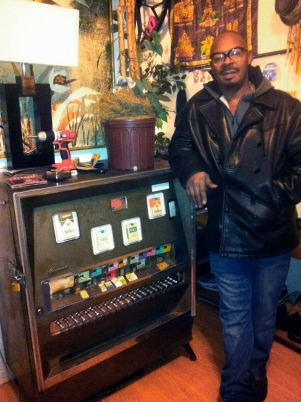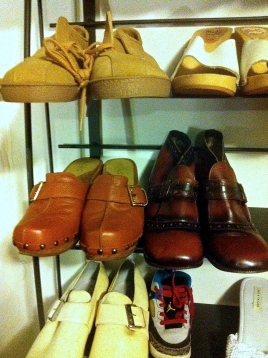A weathered-looking couple lugs a garbage bag of scarves into Sylvester Robinson’s boutique storefront on Kensington Avenue in Philadelphia.
Robinson, 54, opens the bag and inspects the goods. He does not ask where the scarves came from and the couple does not say.
Silently, he nods and the scarves are carried to the back of his supply room where they will wait until he finds buyers.
Robinson isn’t the only person in the Kensington neighborhood to sell goods with dubious origins. To the addicts that need money to fund their habits, stealing and then re-selling their plunder is an easy way to generate cash.
A crime prevention officer for one of the three police districts that monitors Kensington, who wished to remain anonymous to protect his job, said that 95 percent of the time the root cause of robbery and thefts in his jurisdiction is drug addiction.
“If someone is arrested for robbery, you look at their sheet and somewhere along the line, you’ll see evidence they’ve got a drug problem,” the officer said.
According to the Philadelphia Inquirer Crime Data, there have been 180 property crimes reported in Kensington in November of 2014 alone, putting the property crime rate at 3.6 percent. That’s the 11th highest crime rate out of 55 neighborhoods.
In Kensington, retail stores selling furniture and household items are almost as common as used syringes lining the streets. Rent is cheap and the products available for sale are cheaper. The sidewalks along Kensington Avenue are littered with furniture and appliances waiting to be sold, with sometimes as many as four or five of these shops in one block.
Robinson’s boutique is one of them. He said he doesn’t always have knowledge of where the items he sells originated. Many times people arrive at his doorstep hoping to make a little cash off a few things they had buried in their closets. His store is adorned with remnants of times past – pairs of men’s platform shoes, obscure records, and old movie posters. While everything is available for sale right in his store, he makes most of his money selling the items on eBay.
Still, Robinson said every once in a while, he worries about the nature of his business.
“I see someone selling an iPhone with a picture of kids on it and I’m like, those don’t look like your kids,” Robinson said. Though Robinson mostly up-sells vintage items like shoes and bags that people bring to him from their closets at home, he doesn’t ask questions if an object’s origins are suspicious. The profits he keeps padlocked in an old cigarette machine in the back of his apartment.

Robinson keeps the profits from his no-questions-asked retail store inside an antique cigarette machine in his apartment.
The officer said that all pawn shops in Philadelphia are required by city ordinance to register with LeadsOnline, which, according to its website, is an “investigation system used by law enforcement to recover stolen property, help stop meth makers, reduce metal theft, and solve crimes.” Through this system, businesses such as pawn shops are required to log a description and picture of an item onto the LeadsOnline website before it can be sold. Law enforcement can then search for reported stolen items and alert business owners to put them on hold.
The neighborhood of Kensington is divided up into several police districts, including the 26th and the 24th where the officer says there are only a handful of pawn shops, all of which are in compliance with using LeadsOnline. The real problem is tracking goods that have made it to scrap yards, which, the officer says, are not required to be registered on LeadsOnline.
“They all have signs up saying we don’t buy stolen goods, but how the hell do they really know,” the officer said. “Someone comes in with $200 worth of copper pipes every single day, you have to know something’s not right.”

Though Robinson mostly up-sells vintage items like shoes and bags that people bring to him from their closets at home, he doesn’t ask questions if an object’s origins are suspicious.
Copper and metal stripped from air conditioners, washing and drying machines, cars, bikes and other household appliances can fetch a lot of money in scrap yards. According to the police officer, the law in Philadelphia only requires that a person show identification if they collect more than $125.
The officer says diligent practices are the best shot people have to recover their property. He suggests writing down the serial numbers on all cell phones, bikes, and computers. The Police Department of Philadelphia offers a bicycle registration program that allows residents to record the serial numbers of their bikes in a city database, making the chances of recovery more likely should it be stolen.
“There’s a lot of issues to combat in successful prosecutions,” the officer said. “You may find your stuff on Craigslist but then what? If you don’t have your serial number, too bad.”